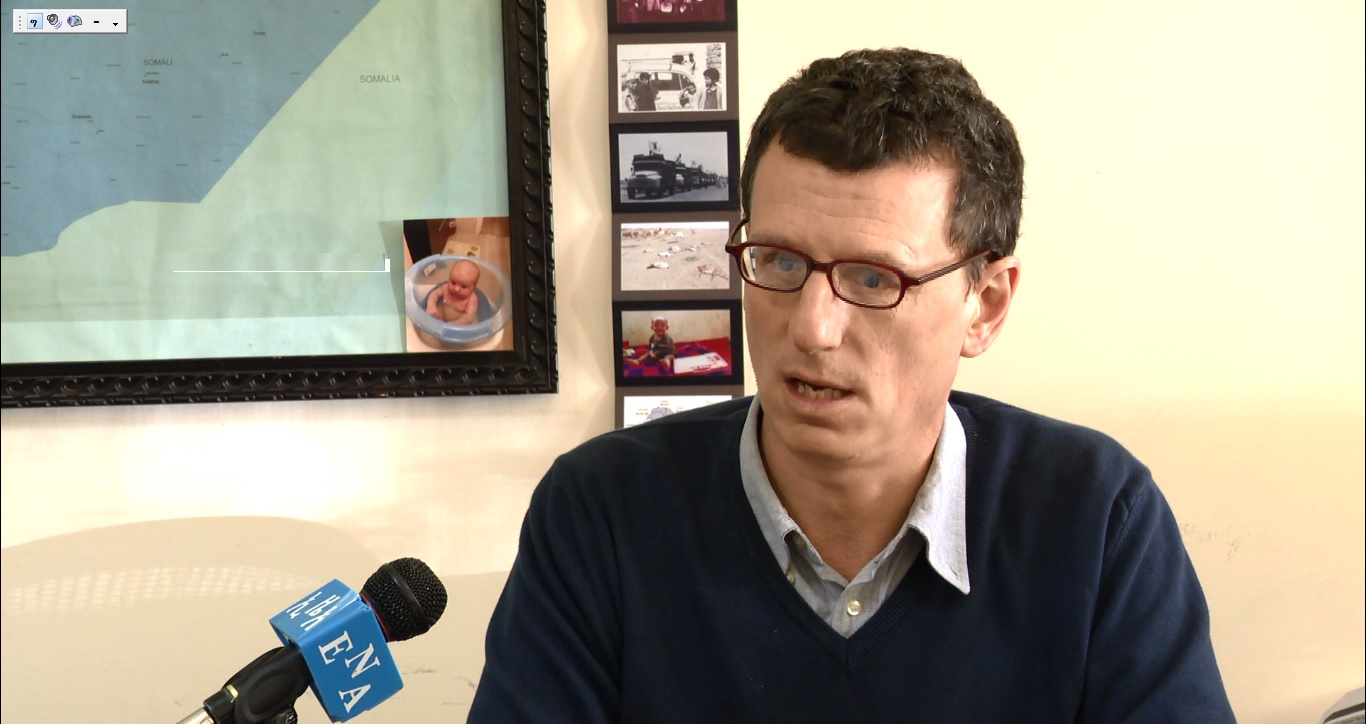Desert Locust Could Challenge Food Security in Ethiopia: FAO - ENA English
Desert Locust Could Challenge Food Security in Ethiopia: FAO

Addis ababa ENA November 16/2019 The Food and Agriculture Organization of the United Nations (FAO) warned that desert locust could lead Ethiopia in to problems of food security, if not controlled immediately.
The desert locust that migrated from Somalia and Yemen has been swarmed grazing and crop land in different parts of Ethiopia, mainly in parts of Afar, Amhara, Somali, Tigray, Oromia and Dire Dawa.
The crisis of desert locust started around June 2019 and became a threat to agricultural production and fodder in the country.
In an exclusive with ENA, FAO Ethiopia Program Officer, Jacopo D’Amelio said the desert locust is advancing to places and eat massive amount of green vegetation, pasture, crops and forest.
“This is a very big crisis that could lead, and if not controlled, will definitely lead to very big problems for food security both for the farmers and pastoralists that are grow crops,” D’Amelio said.
FAO is working closely with the Ministry of Agriculture and international partners to handle the crisis immediately.
Even though the government of Ethiopia is striving to control the advancement of the locust, the efforts are not successful.
Noting that this is because activities that aimed to control the locust require huge resource, D’Amelio said “we need to mobilize more resources now.”
He said that FAO is working to provide financial assistance to support efforts aimed to control the locust. “We look at immediate requirement, which is basically trying to increase the capacity for ground and area of operations. We provide them with financial resources.”
According to the Officer, FAO is working to mobilize resources that would help Ethiopia immediately control the swarm.
He said “FAO is in discussion with international partners to put resources on these. And, in this case we are looking at immediate needs for immediate operations, but also for medium term manage to work on stronger capacity to address these issues in immediate, but also in the future.”
Saying that the resource mobilization efforts are “quite positive” D’Amelio said “We are in an advanced stage and we hope that in a few days we may have good news for the government of Ethiopia.”
D’Amelio said “we need to operate now,” stressing the locust may migrate to neighboring countries and will cause more crises in the region if not controlled immediately.
According to Zebdewos Salato, Director of Plant Protection at Ministry of Agriculture, it is still difficult to control the locust as it is still migrating into the country from Somalia.
Zebdewos said locust hopper bands that have rested on river banks, valleys, places where there is no manpower and areas of insecurity have finished their growth and are coming out, displaying the continuity of the threat.
According to Zebdewos, cooperation is needed to control the locust and active monitoring.
“It needs campaign and coordination to control the crisis of desert locust. Using pesticides and chemical spray is not enough. Communities should actively participate in controlling the swarms at the areas where spraying of chemicals is difficult, and continue to monitor the situation and share information for concerning bodies,” he said.